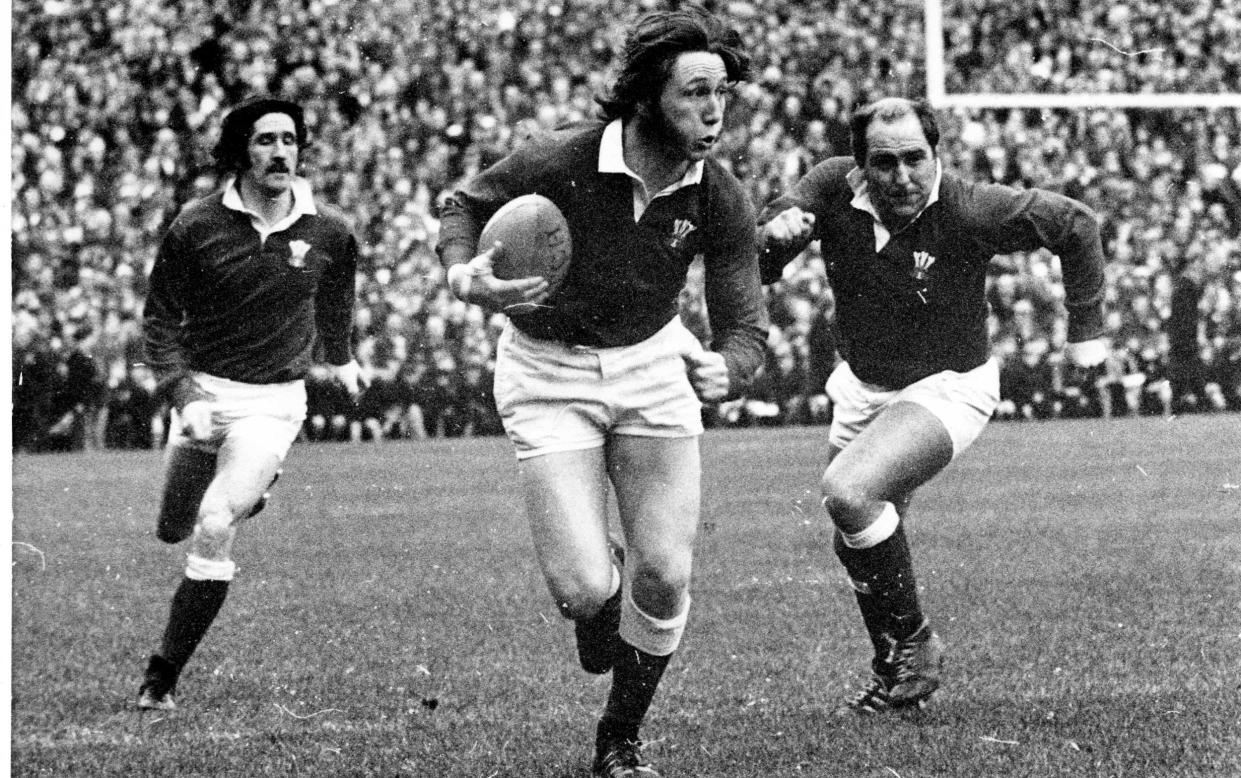
JPR Williams, who has died of bacterial meningitis aged 74, was one of the finest rugby union full-backs of all time and a courageous, highly competitive mainstay of the great Wales teams of the 1970s.
An inspirational, warrior-like figure with his long hair, extensive sideburns and rolled-down socks, Williams played 55 times for Wales from 1969 to 1981, during which time they won three Grand Slams, six Triple Crowns and eight overall titles in the Five Nations Championship. He was also a stand-out figure for the British & Irish Lions, with whom he was exceptional on their triumphant 1971 and 1974 tours against New Zealand and South Africa.
The two words most commonly used about Williams were “uncompromising” and “fearless”, but he had many admirable qualities besides. He was imperious under the high ball and a rock-solid tackler – both traditional prerequisites for full-backs – but what made him so special was his additional willingness to venture out from the rear in attack.
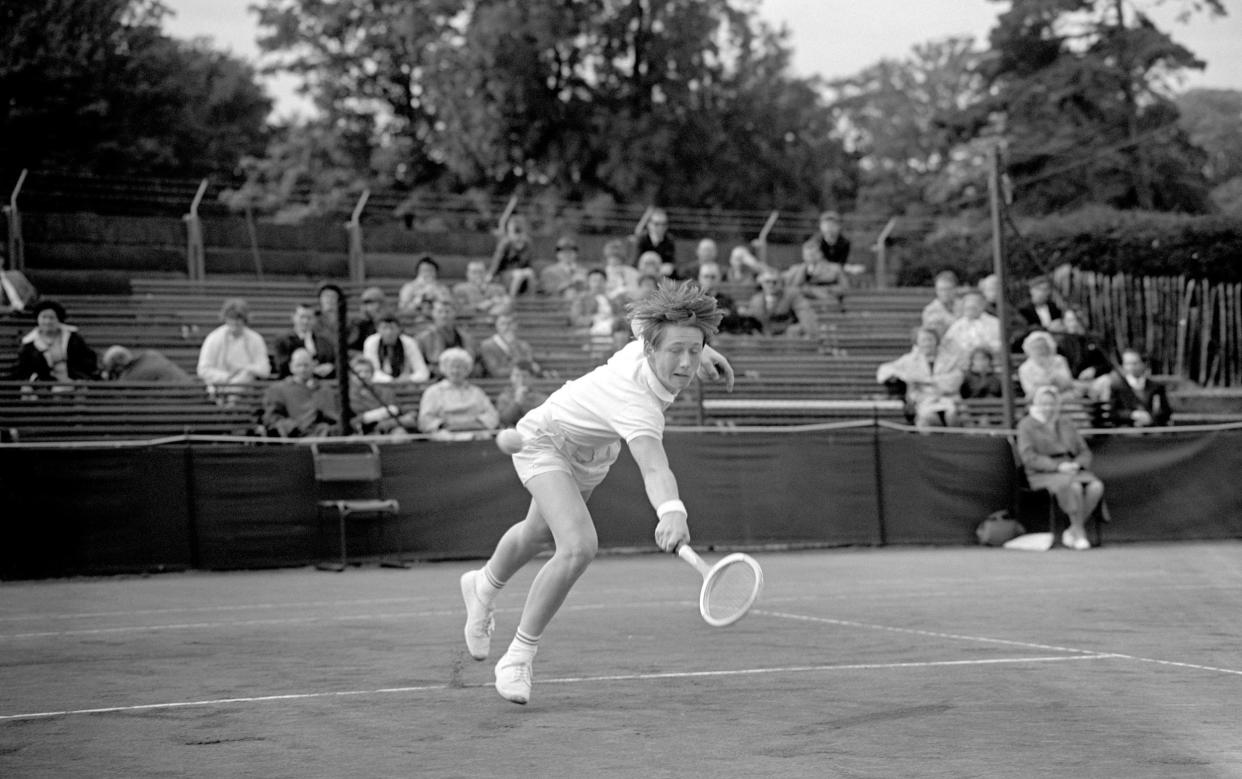
The Lions coach Carwyn James once compared JPR in full flow to Pwyll, Prince of Dyfed, “riding majestic and mysterious in the mist of the Mabinogi”, and indeed there was a magical power when he was on the run – a sight that stirred the blood.
Of Williams’s many memorable moments, there were four that stood out. The first was his long-distance drop goal in the final Test for the Lions against the All Blacks in 1971, sealing a series victory. The second was his exhilarating winning try at the end of “the greatest game ever played”, for the Barbarians against New Zealand in 1973.
The third was a stupendous Grand Slam-saving tackle in 1976 that prevented Jean-François Gourdon from touching down for France in the corner at Cardiff Arms Park. And the fourth was his return to the pitch for Bridgend against New Zealand in 1978 after having had 30 stitches inserted into his face on the side of the pitch.
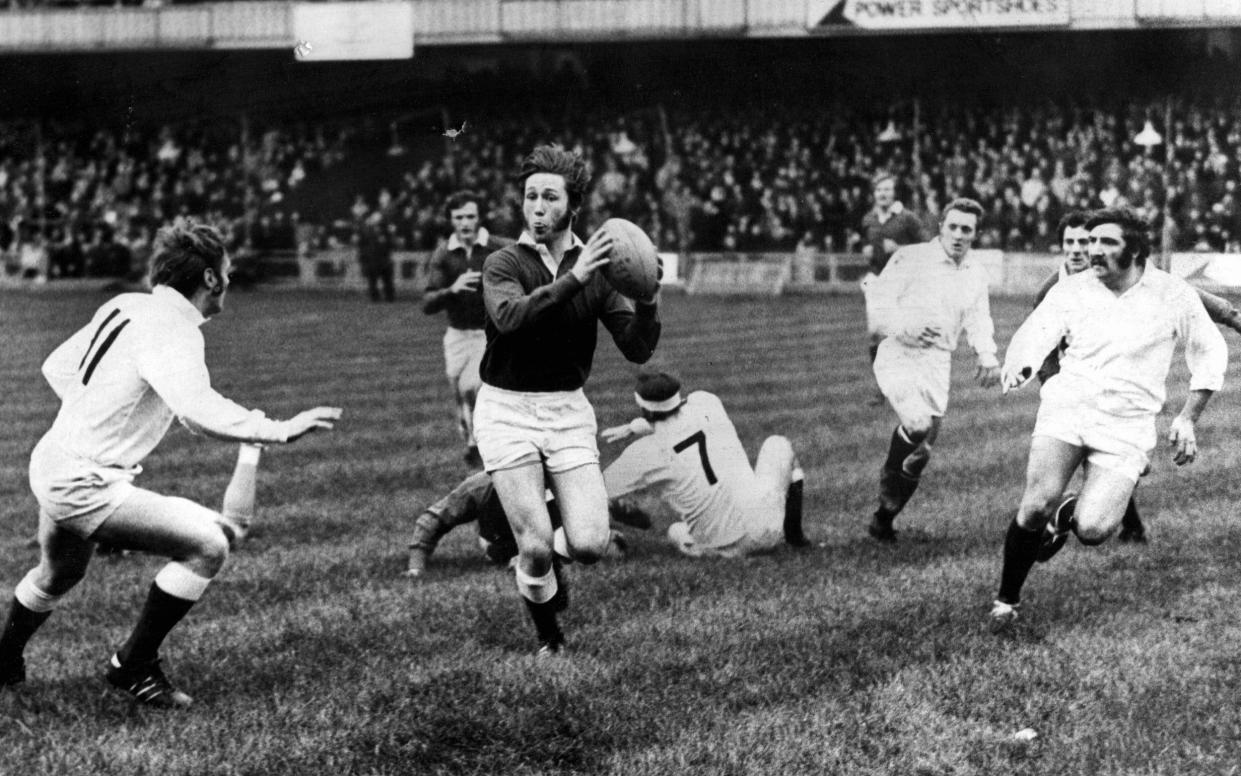
Each episode encapsulated different aspects of Williams’s greatness – his quickness of thought and calmness under pressure, his running prowess in attack, his unflinching ability to do what was necessary, and his sheer, cussed bravery. No side featuring Williams was ever likely to be without heart, nor to lack the will to win, which is why so many of the teams in which he played were so consistently successful.
John Peter Rhys Williams was born on March 2 1949 in Bridgend, South Wales. Both his parents, Margaret, an Englishwoman, and Peter, a Welshman, were GPs. They ran a family practice adjacent to their comfortable Bridgend home, where John, a mischievous and lively youngster, grew up playing rugby in the large back garden with three younger brothers, Phil, Chris and Mike.
At Bridgend Grammar School he appeared at full-back for the Wales Under-15s side before spending a year as a sixth former on a rugby scholarship at Millfield School in Somerset. He was also a talented tennis player, becoming Welsh Under-16 champion in 1963 and Junior Wimbledon champion in 1966, beating David Lloyd 6-4, 6-4 in the final.
On the whole, though, he found the closed environment of the tennis circuit stifling, much preferring the down-to-earth team atmosphere of rugby. After leaving school in 1967 to study medicine at St Mary’s Hospital in London, he began to concentrate on the latter at the expense of the former.
While St Mary’s had a good reputation for rugby, JPR initially also played for Bridgend, travelling the 160 miles home by train for games. In April 1968 he appeared in the first professional Open-era tennis tournament, at Bournemouth, with Ken Rosewall and Pancho Gonzales in the draw, but was knocked out in the first round.
Snatching up his £20 appearance cheque (“great news for a student”) he rushed off to play for Bridgend against Newport that evening, making two try-saving tackles on the Welsh international Stuart Watkins in front of the national selectors. As a result he was chosen to tour Argentina with Wales that autumn, and rugby finally won out over tennis.
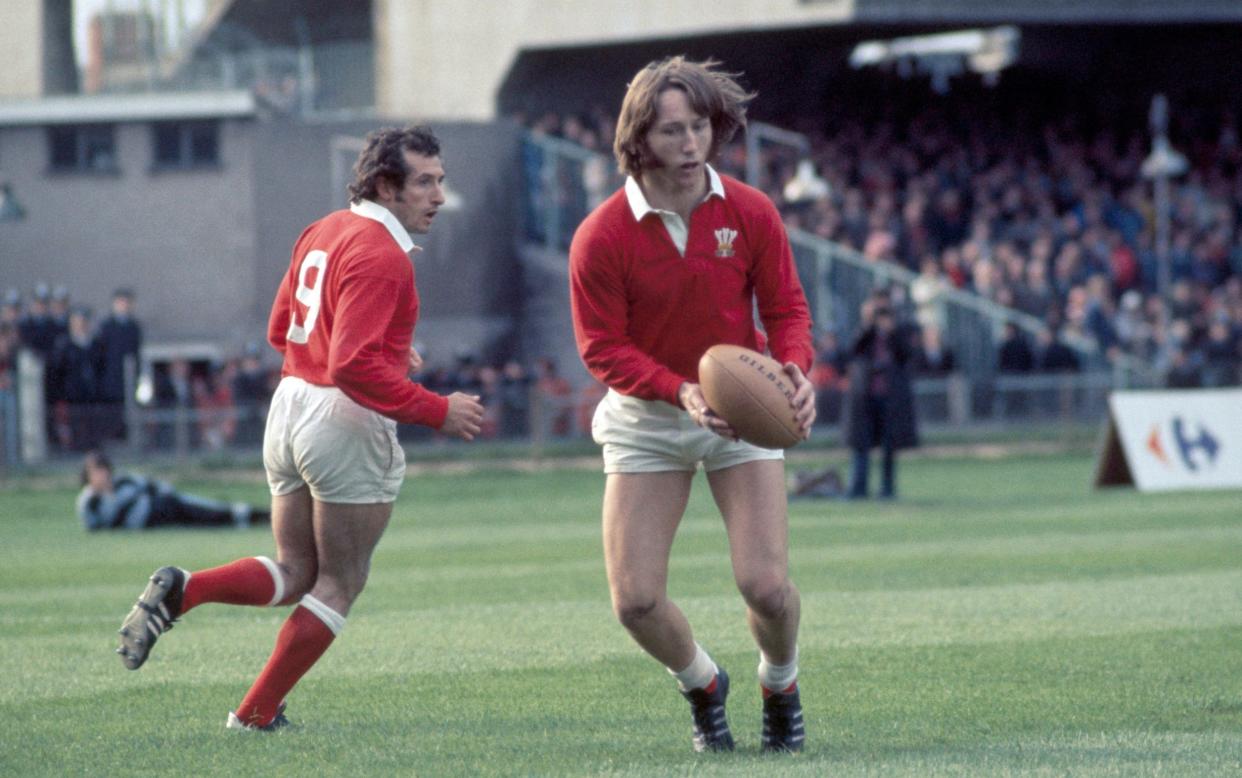
It was in Argentina that the Wales captain, John Dawes, persuaded him to join London Welsh in Richmond upon Thames, a move that dramatically reduced his travelling. The club had a large core of Wales internationals who helped with Williams’s development, and their innovative, risk-taking brand of rugby fitted in well with his own ethos.
Williams’s first full cap came at the age of 21 in February 1969 against Scotland in the Five Nations Championship at Murrayfield, where he announced himself as a new kind of adventurous full-back. “When the first whistle went, I felt suddenly calm, and my mind cleared,” he recalled. “I distinctly remember deciding to run with the ball the first time that I touched it. I wanted to show everyone what I could do, and how I thought the game should be played.”
Over the next decade he became one of the most vibrant elements of a Wales team that also included the likes of Gareth Edwards, Barry John and Phil Bennett, and which thrilled the sporting world. Williams often rejected the idea that Wales were the greatest national side of the 1970s, pointing out that he played New Zealand five times in a red shirt and never won once. But he acknowledged that there was something special about their game.
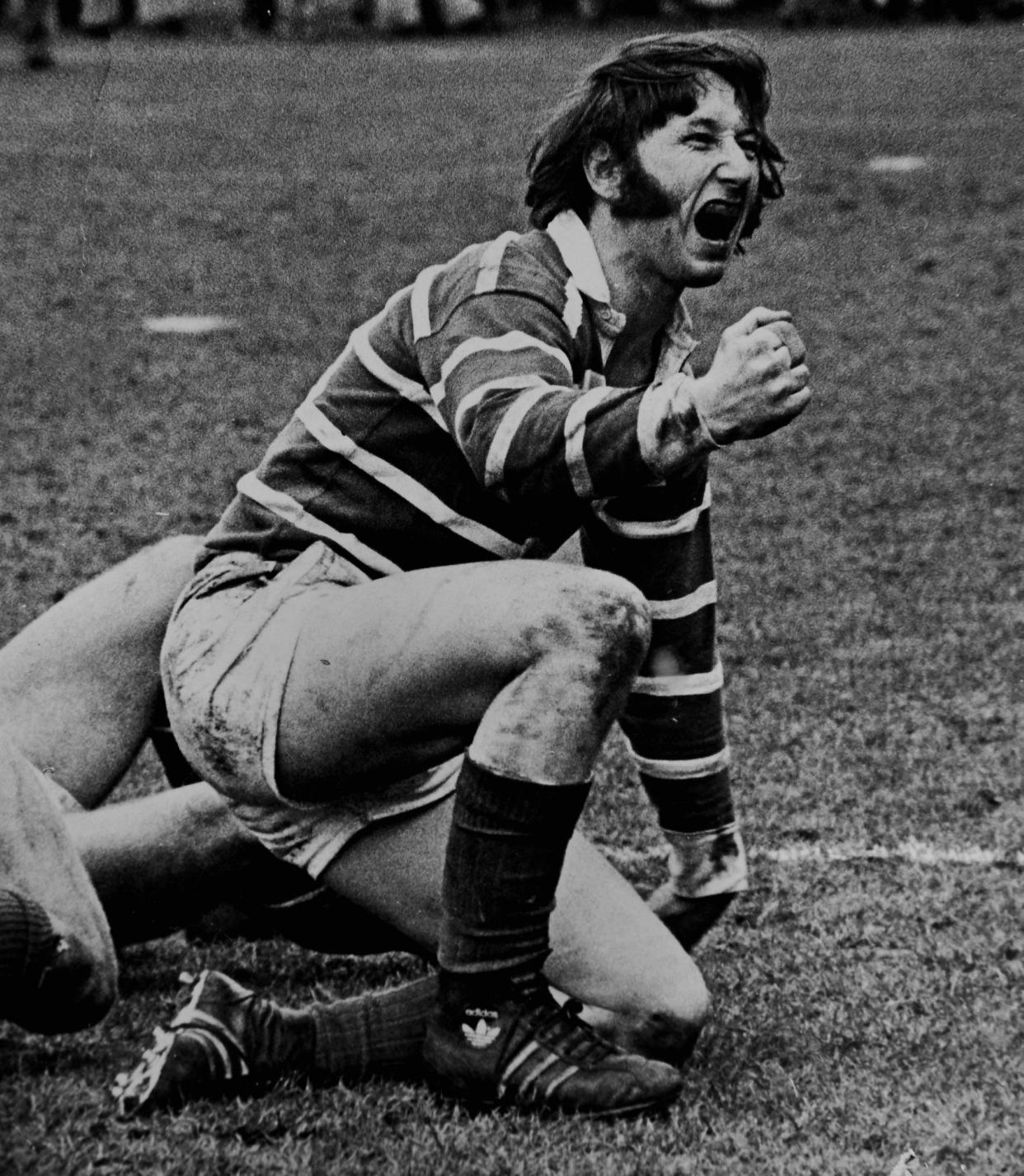
“What really earned us our place in the history of rugby was the way we played,” he said. “It was our unforgettably exciting style that meant the Welsh teams of the 1970s will always be revered.”
Despite his great years with Wales and 11 matches for Barbarians, Williams regarded his time with the Lions as the pinnacle of his career. He was only two years into international rugby when he was called up for the tour of New Zealand in 1971, on which he played in all four Tests. His kick from almost 50 yards in the deciding match at Auckland was a rare bird – the only drop goal he ever scored in Tests – and was instrumental in securing a 14-14 draw as the Lions won 2-1 overall – the only time they have won a series against the All Blacks.
On the 1974 trip to South Africa he was again a key part of a history-making squad as the Lions won three of their four Tests and were unbeaten in all 22 matches they played. It was on that tour that he first became known as JPR, using his initials to distinguish himself from another John Williams – JJ of that ilk – who featured prominently in the same team.
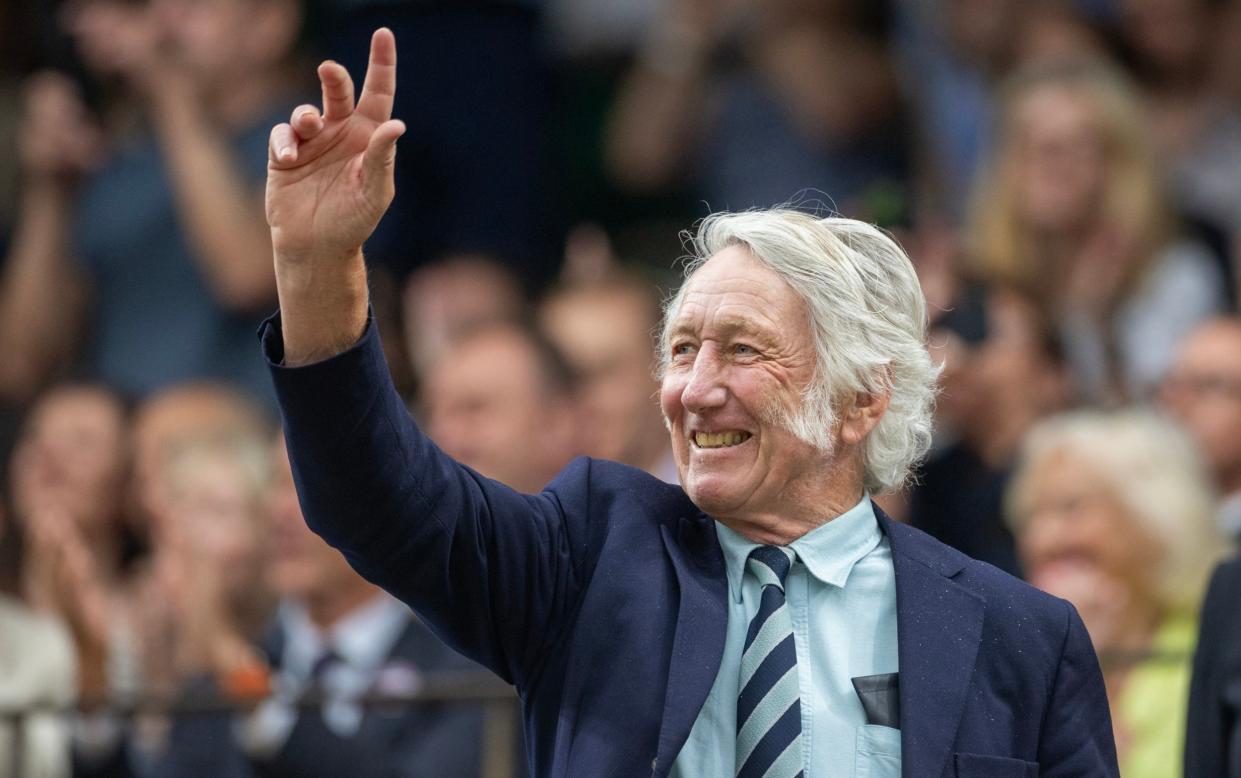
In 1976 JPR moved back to Wales to become a senior house officer in the surgery department at the University of Wales Hospital in Cardiff and to return to playing for Bridgend, whom he captained during the 1978-79 season. He also led Wales in their successful 1979 Five Nations campaign, guiding them to the championship title and the Triple Crown before announcing his retirement at 31.
Later regretting his decision, he made a brief return that encompassed two Five Nations games for Wales in early 1981 before finishing for good.
Concentrating thereafter on his medical commitments, Williams became a consultant in trauma and orthopaedic surgery at the Princess of Wales Hospital in Bridgend in 1986, retiring from that post in 2004.
He is survived by his wife, Scilla (née Parkin), a GP whom he married in 1973 after they had met at St Mary’s, and their four children.
JPR Williams, born March 2 1949, died January 8 2024
Article courtesy of
Source link